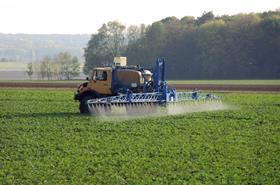
Just over three per cent of fruit and veg sold in the UK broke legal pesticide residue limits in 2017.
The government’s Pesticide Residues in Food report analysed 1883 samples of fruit and veg for up to 376 pesticides and carried out around 663,789 food and pesticide tests to monitor what shoppers are consuming in their fruit and veg.
The survey found residues in 1174 of those samples (62.3 per cent). Of those samples, 63 samples, 3.3 per cent, contained a residue above the maximum residue levels (MRLs).
Okra and pod beans from abroad were the among the worst offenders, notching up 18 and 23 breaches of MRLs respectively.
Produce from the UK however, led the way in avoiding MRLs, with just 0.9 per cent of British veg sampled containing more residue traces than allowed.
The report did not find any residues above the MRL in apples, carrots, cauliflower, cherries, cucumber, grapes, kiwi fruit, lettuce, onions and pears.
Commenting on the report, Dr Paul Bramtom, chairman of the Expert Committee on Pesticide Residues in Food said: “Our programme uses the latest technology for analysis, which is constantly improving; this means that each year we can look for more pesticides at lower levels. For these reasons we expect to see a rise in the number of samples with residues detected, including some over the MRL.
“HSE (Health and Safety Executive) assess the risk to consumer health for every sample that contains a residue at any level. From the results of these assessments we can see that even where food contains a residue above the MRL, there is very rarely any risk to the health of people who have eaten the food.”



